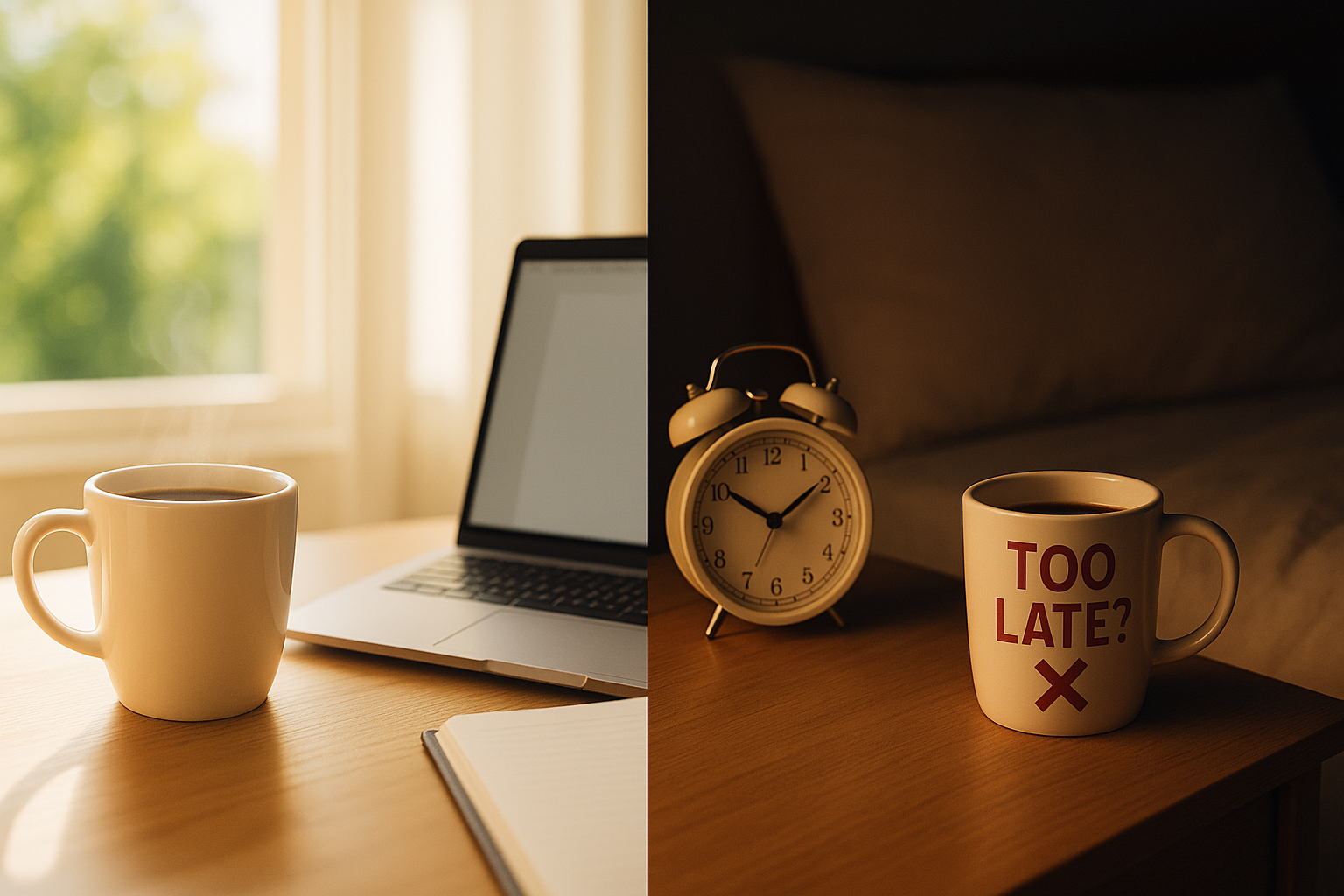Coffee is the world’s most popular pick-me-up—but its relationship with energy and sleep is more complex than just a morning boost. While caffeine can improve focus and alertness, timing and quantity play a crucial role in how it affects your energy levels during the day and your sleep quality at night.
In this article, we’ll break down how coffee affects your body’s natural rhythm—and how to enjoy it without sabotaging your rest.
What Happens When You Drink Coffee?
The key ingredient is caffeine, a natural stimulant that affects your central nervous system.
Here’s what it does:
- Blocks adenosine, a neurotransmitter that causes drowsiness
- Increases dopamine and adrenaline
- Boosts alertness, focus, and mood
Effects start within 15–30 minutes and can last 4–6 hours—sometimes more depending on your metabolism.
Energy Boost: The Good Side of Caffeine
When used wisely, coffee can:
- Help you wake up more alert
- Improve concentration and performance
- Reduce feelings of fatigue
- Boost your workout or productivity
Best time to drink:
- Between 9:30 a.m. and 11:30 a.m.
- After your natural morning cortisol peak (around 8–9 a.m.)
The Downside: Afternoon Slumps and Sleep Disruption
Caffeine can linger in your system for 6 to 8 hours. Drinking coffee too late can:
- Delay melatonin production
- Reduce total sleep time
- Increase time to fall asleep
- Lower sleep quality
Even if you fall asleep, caffeine can reduce your deep sleep, leaving you tired the next day.
Ideal Cut-Off Time for Coffee
Experts recommend:
- Stop drinking coffee 6–8 hours before bedtime
- For most people, that means no coffee after 2:00–3:00 p.m.
If you’re sensitive to caffeine, stop even earlier or consider switching to decaf in the afternoon.
Does Coffee Help or Hurt Energy in the Long Run?
Boosts energy short-term…
- Especially during mid-morning or early afternoon
- Helps overcome dips in focus and motivation
…But can backfire if overused
- Leads to dependency and tolerance
- Can cause crashes once the caffeine wears off
- May disrupt your natural energy cycle
Tip: Don’t use coffee to replace sleep. Prioritize good rest habits.
How Your Genetics Affect Caffeine Sensitivity
Not everyone metabolizes caffeine the same:
- Fast metabolizers process caffeine quickly and may not feel negative effects.
- Slow metabolizers feel jittery or lose sleep even with small amounts.
Listen to your body—if coffee makes you anxious or sleepless, reduce your intake or adjust timing.
Smart Coffee Habits for Balanced Energy
✅ Have your first cup 90 minutes after waking
✅ Space out your second cup by midday
✅ Avoid caffeine after 2 p.m.
✅ Choose decaf or herbal tea in the evening
✅ Stay hydrated—don’t replace water with coffee
Alternatives to Late-Day Coffee
If you need a lift later in the day, try:
- Decaf coffee: Has the flavor with minimal caffeine
- Matcha or green tea: Lower caffeine, gentler energy
- Short walk or fresh air: Natural energy boost
- Hydration + light snack: Supports energy levels
Final Sip: Enjoy Coffee, Respect Sleep
Coffee is a powerful tool—but only when used wisely. Drink it to complement your natural rhythm, not disrupt it. With smart timing and moderation, you can enjoy the energy boost without the late-night regrets.
✅ Know your caffeine limit
✅ Time your intake smartly
✅ Don’t rely on coffee to fix sleep debt
Balance is key—to a focused day and a restful night.
